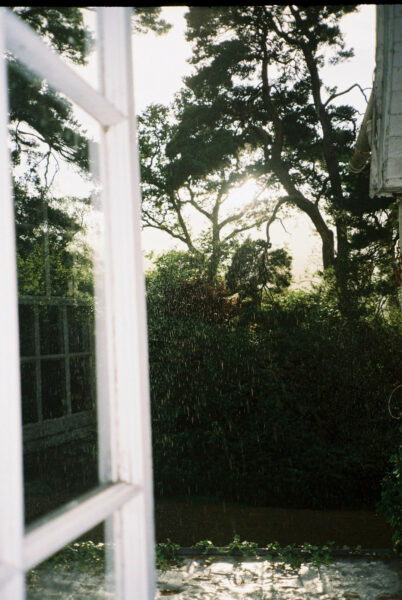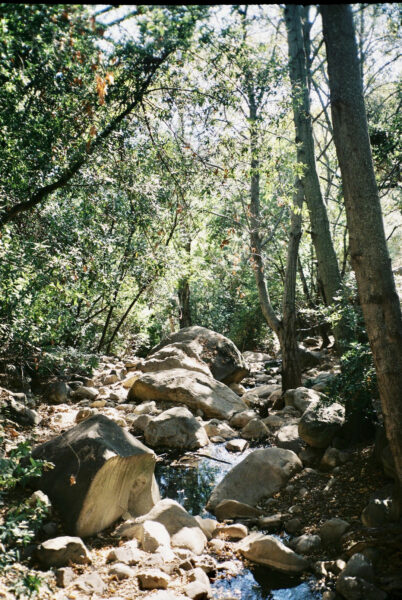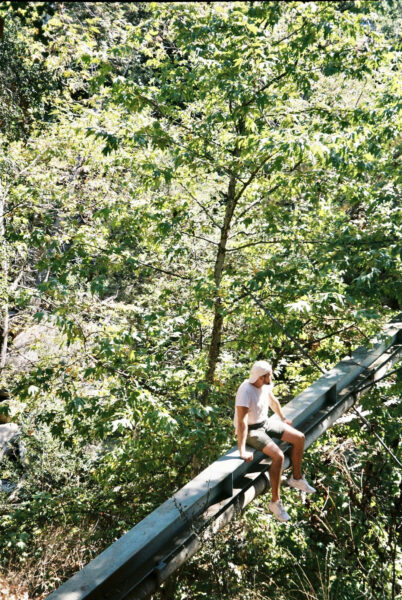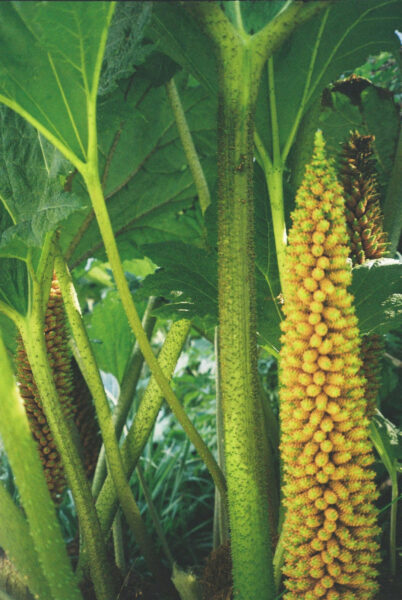Post by ZWAI member Kezia Wright.

The gravity of the climate crisis is so terrifying that we turn our faces away. We cannot possibly contemplate the collapse of our civilization every single day. We have jobs to worry about, people to love, food to put on the table. I go about my day-to-day and every now and again, I get reminded of the situation. A small window opens in my head to the place beyond, the future that we are all looking into. I always know it is there, but I usually just shut it out because, let’s be honest, it’s a bit of a buzz kill.
Then, these kinds of thoughts often crop up:
“Well why should I bother trying to fix it – it’s all fucked anyway.”
“What’s the point of trying to eat vegan/vegetarian when I still fly?”
“What’s the point of speaking out? I am a hypocrite and I will be judged online for that.”
These questions are defeatist and they make me feel powerless and hopeless. I’ll pick up my phone, scroll, distract myself.
Interbeing, Deep Ecology
I read lots about climate change, to the point where I kind of zone out after a while. But, a book that I read recently called “Zen and the Art of Saving the Planet” by Thich Nhat Hanh has really helped me to understand the climate crisis on a more personal and spiritual level. There are so many great ideas in this book, but I’m just going to pick a couple…
The first is the idea of interbeing. It is a pretty trippy concept so it requires some mental flexibility, but it can be broadly defined as the realization that we are interconnected with everything else. Sounds simple right?

This concept challenges us to get rid of our notion of a “self” and instead see ourselves as being completely dependent on other human and non-human beings.
“If you are a poet, you will see clearly that there is a cloud floating in this sheet of paper. Without a cloud, there will be no rain; without rain, the trees cannot grow; and without trees, we cannot make paper. The cloud is essential for the paper to exist. If the cloud is not here, the sheet of paper cannot be here either. So we can say that the cloud and the paper inter-are.”
Thich Nhat Hanh, excerpt from Teach Breathe Learn by Meena Srinivasan
Interbeing is related to “deep ecology.” Simply put, deep ecology encourages us to respect all human and nonhuman life, regardless of how useful this life is to humans. This is because we are deeply interconnected with other humans, the forests, the ocean, animals etc. When the planet suffers, we suffer. When other people suffer from injustice, we suffer. We cannot extract ourselves from the suffering that comes with the climate crisis because we inter-are the air, rivers, forests, oceans, and animals. We depend on their health.
I’m not one to follow ideologies and this isn’t a fixed doctrine, just a collection of thoughts that I have gravitated towards in my own thinking about the environment. Bringing it back to reality, these concepts have helped me to look deeper at everything that I buy, use, or put my energy into. They can change the way that we see the world and they naturally open up a greater sense of compassion towards other people, animals, and our ecosystems. Interbeing and deep ecology address the root of environmental destruction, which is our separation from each other and from nature. This is the same root that stems racism, sexism, classism and any other form of social oppression, what Timothy Morton calls the “supremacy of existing.”
The climate crisis is a deeply personal issue. There is a tendency to think about it as this abstract thing that is separate from ourselves that someone else in the government, in some office department, or at some future point in time will deal with. But, deep ecology has helped me to understand that if I do not engage with the climate crisis, then I am ultimately hurting myself.

– Timothy Morton
Art
Weaving these ideas into a new cultural narrative is the challenge of a lifetime. How do we reframe ourselves as deeply interconnected beings rather than individuals? This is an emotional re-engagement that cannot be cooked up in the offices of CEOs or the wings of political buildings. It has to hit us in the heart. It has to go beyond the trappings of a society that does everything to turn us into consumerist narcissists. And, it has to be beautiful, just like nature.
It is the story of a generation that grow up underneath a large, dark cloud; it is the smell of burning trees in the hills of California; it is staring into the rock pool eye of a cow and seeing yourself; it is the recognition of the tree in your floorboards; it is the realization that no new bag, gadget or pair of shoes will ever give you as much satisfaction as walking on a beach on a warm summer’s evening; it’s the final, inglorious breath taken by the last member of a species in a forest; it is the loneliness that creeps around concrete cities like shadows; it is the weight of the world at the end of a civilization.
Story-telling, art, music, film – these connect with us at an emotional level. Art brings us together. It touches that weird soft soul-part of our bodies, where the window opens slightly. It is there that we need to connect to this problem. Effective and informed actions will arise out of a deeper connection to the problem.

Nature is a great mystery. A mystery that cannot be forced into a rational straight-jacket. It cannot be controlled, and any attempt to stop climate change by further bending nature to our will is addressing the problem with the same level of thinking and hubris that created it. Where did our reverence for that mystery go?
My point is to re-angle ourselves. A slight tipping towards the light. These ideas don’t hit you like a ton of bricks. They take time to seep in. To collectively develop a much deeper connection with nature that goes beyond the veneer of bullshit sustainability advertising and virtue signalling, we need to connect at the heart level.
The environmental movement suffers from self-entitlement and preach-ery. I hope that my words haven’t come across like this. My intention is just to share some ideas with you that have helped me. I am really keen to connect with people, so do reach out if you want to chat. Thanks for reading.
Kezia has been a member of ZWAI since September 2021. She currently leads climate at Intertrust Technologies and is a musician. Find her original blog post on her website, humansofthewild.com, and follow her on LinkedIn.
